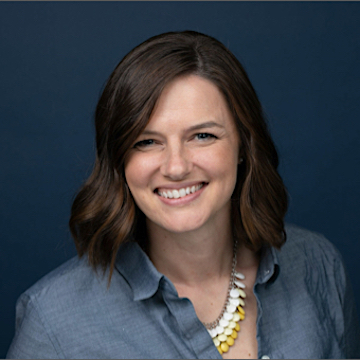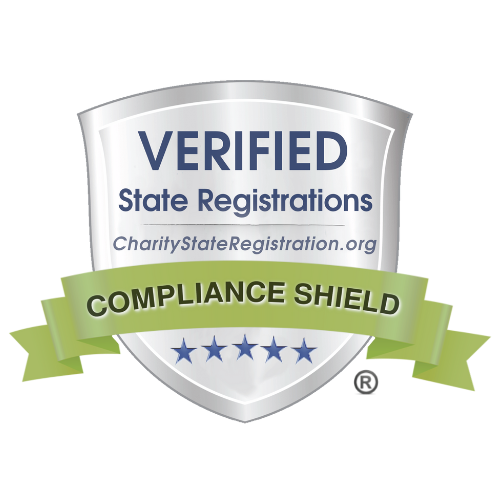Christina Schauer

Branch: Army
Years Served: 1999-2007
Rank: E5
Military Occupation: Combat Medic
Hometown: East Dubuque, IL
Twitter Handle: @cschauer
Tell us a little about you outside of the military:
- I’m married to my high school sweetheart and we are currently raising two incredible boys. On our very best days, we can be found hiking a mountain trail in a US National Park.
- Though I very much enjoy this leisure time, I’m also fortunate to have a fulfilling career as a masters-prepared clinical nurse specialist. I work in a community hospital serving as the Director of Clinical and Professional Development and, as part of my role, I was asked to initiate and lead our organization’s military and veteran healthcare program in 2019.
- Though closing gaps in healthcare for veterans began as a professional goal through this program, the work quickly transformed into a personal passion. Over the past few years, I’ve become active in our local veteran community. One of the gaps quickly identified in our community was a lack of social support for women veterans, which we know to be an important social determinant of health. In identifying this need for connection among women veterans and service members in our area, several women veterans in our community, including myself, came together to form the “Tri-State Women Warriors”. We serve to provide connection and advocacy for the unique needs of women veterans and service members, and we work in close collaboration with other established veteran groups in our community.
- The Tri-State Women Warriors meet at least monthly and in our one year of existence, we have had approximately 50 women veterans or service members physically attend at least one event in our small community. When not working or with my family, I am typically found planning or attending events with these women warriors.
What do you hope to gain from the fellowship?
- I feel that I have a unique perspective as a woman, a veteran, and a nurse committed to improving healthcare for veterans and service members. I have the opportunity to observe veteran healthcare from the viewpoint of a nurse leader in a community healthcare system, and as a patient of both the community and the VA systems. Through close connections with other veterans, I’m also acutely aware of other veterans’ experiences with healthcare.
- Closing gaps in healthcare for veterans is remarkably complex, and one of my greatest challenges is translating this wide range of opportunities I observe into succinct talking points with actionable solutions. In the brief amount of time I spend with a lawmaker, I want to ensure the conversation is meaningful and results-oriented. I am hoping the fellowship will assist me in ensuring these conversations quickly establish a trusting relationship with lawmakers and lead to change.
What does advocacy mean to you?
- To me, advocacy is provoking change through education. One of the most effective means of education is storytelling, but, unfortunately, the most difficult and uncomfortable stories often lack a storyteller. An advocate has a responsibility to ensure these stories are heard by lawmakers and that lawmakers understand what is needed for positive change.
How did your military experience shape you to be the person you are today?
- The most impactful portion of my military experience was the year I spent in Baghdad, Iraq as a combat medic. This time taught me to trust in my ability to overcome difficult experiences, and to make sure I use the lessons learned from these experiences to grow. I also learned the value of strong, loyal support systems. The camaraderie I experienced throughout that year has led to a support system of lifelong friendships that bring great fulfillment to my life. This likely contributes to my drive to ensure other veterans have a social support system, as well.
Which one of IAVA’s policy priorities do you believe is the most pressing? Why?
- I believe the most pressing policy priority is veteran suicide because losing even one veteran to suicide in this country is unacceptable. That said, reducing veteran suicide requires improvement in each of the priorities, as all address barriers which increase the veterans risk for suicide. While brain health services and crisis intervention are vital, the ultimate goal would be to create a path during and after military service that provides the hope, resources, and support necessary to eliminate the risk of suicide altogether.
Which one of IAVA’s policy priorities do you have the strongest personal connection to? Why?
- I feel the greatest personal connection to closing gaps in care for women veterans because of my own personal experiences. My daughter, Madelyn, was born still at 20 weeks with a severe neural tube defect called anencephaly. For many years, I had tried to avoid the thought that her condition could have been the result of my military service, though I have no other familial history, because in my mind this would have made her condition my fault. I felt a visceral reaction the first time I learned about the association of military service and birth defects. This reaction became even more intense when I learned that neural tube defects are one of the many categories of birth defects associated with a women’s service in Vietnam, though not associated with exposure to herbicides or dioxins (Birth Defects in Children of Women Vietnam Veterans – Public Health (va.gov)).
- Since then I’ve tried to learn whether this phenomenon is also occurring in women veterans returning from Iraq and Afghanistan veterans, but the research is minimal and studies are often weak. Women veterans’ OB care is so fragmented that large datasets just don’t exist. I’m concerned we could have women experiencing a preventable loss only because we haven’t learned anything new in the 10 years since Madelyn was born. I would love for Madelyn’s legacy to drive improved research in birth defects among women veterans returning from Iraq and Afghanistan, to improve the odds that future children born to women veterans receive the chance at life that she wasn’t given.
Day2_Christina Schauer from IAVA Videos on Vimeo.
More #AllStarAdvocacy videos are available in IAVA’s 2023 All-Star Advocacy Fly-In video showcase.





